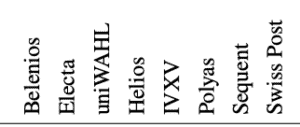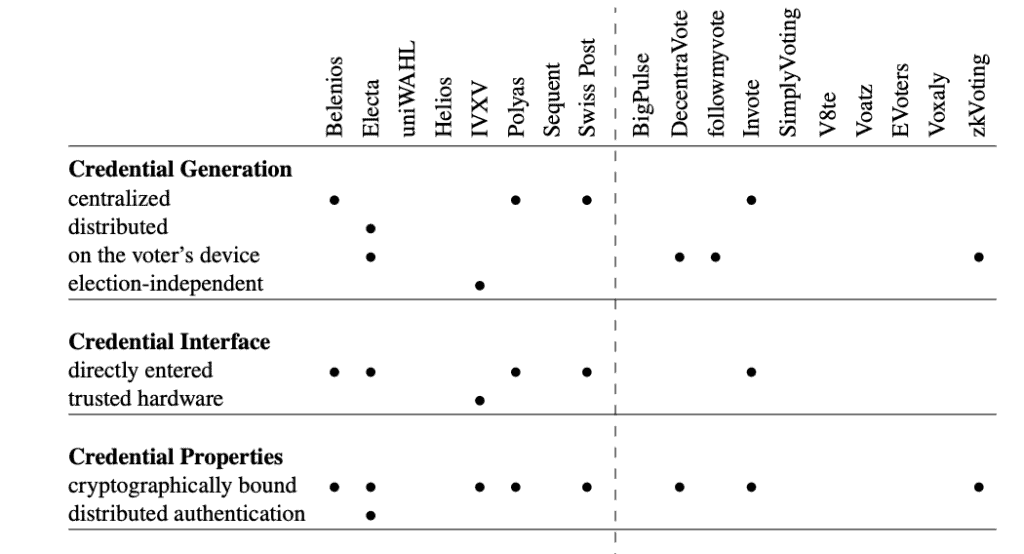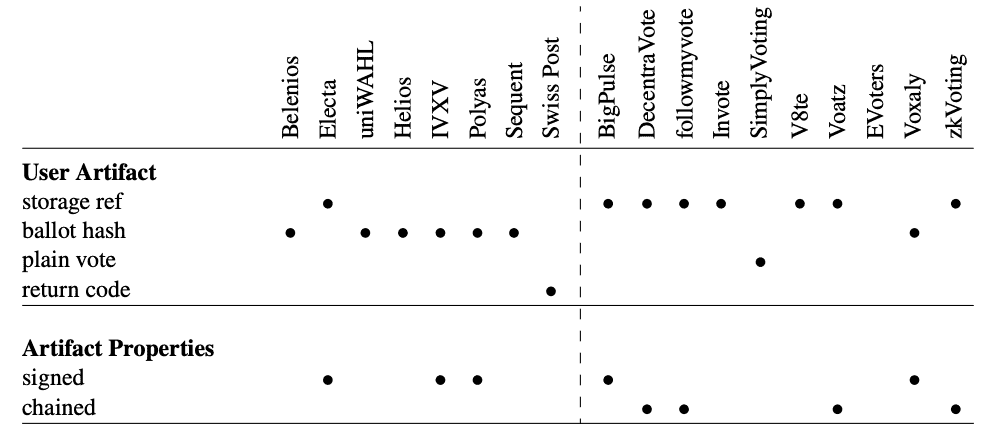A research paper recently compared a number of online voting systems claiming to be “verifiable” based on their publicly-documented characteristics. We are thrilled to report that Electa stood out amongst its peers and would like to dedicate this post to covering the paper’s findings, as well as what they have to say about Electa as an online voting system.
1.Electa is One of Few “Well-documented” Verifiable Online Voting Systems
After recruiting a business consultancy to conduct market research to find an online voting solution and looking through existing research, the paper’s authors identified 82 systems which might provide “verifiable internet voting.” After closer examination, the authors further narrowed down the list to 29 active systems, of which 18 publicly provided information about their underlying construction.
Even though the authors examined all 18 of these systems, Electa was one of only 8 which were determined to be “well-documented” by them. This means that the mechanisms and mathematics behind the systems are publicly available and open to scrutiny.
2. Electa Holds Its Own Amid Notable Names
Examining the eight “well-documented” systems in the paper, we see several which come from companies, some more well-established than others.

We also see two solutions – Swiss Post and IVXV – which are developed for public elections in Switzerland and Estonia respectively, meaning they meet government regulations regarding security and transparency. As we’ll discuss and show, Electa’s documented features rival those of these systems, including in how the system records, encrypts, stores, and decrypts votes.
3. Electa Sticks Out in Authenticating Voters
Whether when voting online or at a polling place, ensuring that a voter is who they say they are (and eligible) is paramount. In the paper, the authors evaluate the selected voting systems based on a number of mechanisms used within them to authenticate voters, the results of which are shown in the table below.

While we must clarify that more bullet points does not necessarily mean “better,” Electa nevertheless distinguishes itself from other systems in this category. More specifically, Electa both generates and authenticates credentials in a distributed manner. This helps ensure that no one except a specific voter will be able to log in and vote using a given set of credentials.
4. Electa’s Vote Receipts Come from the System, Digitally Signed
After a voter casts their ballot in any election, it is expected that they receive some sort of confirmation that their ballot was received and stored properly. In lieu of an “I voted” sticker or a “thank you for voting” email, online voting systems usually provide what is termed an “artifact” – such as a code, a copy of the ballot, or a receipt – which voters can then double-check via an external website or app.

As seen above, Electa is unique in that the artifacts it issues (voter receipts) are accompanied by digital signatures. According to the authors, using a digital signature enables voters to prove “that the artifact really originated from the system” and “makes the system accountable for the artifacts it issues.” Voters are thus assured that – unlike most other systems – any receipts they receive can be indisputably authenticated.
The authors stress that online voting system properties are still ripe for research. However, the findings of this paper have helped set Electa apart, and we will continue to raise the bar for online voting systems.
This article was originally posted as the October edition of Assembly Voting’s monthly LinkedIn newsletter, The Ballot. To see older editions, subscribe, and stay up to date with what we’re up to, head to the homepage of The Ballot on LinkedIn here.


